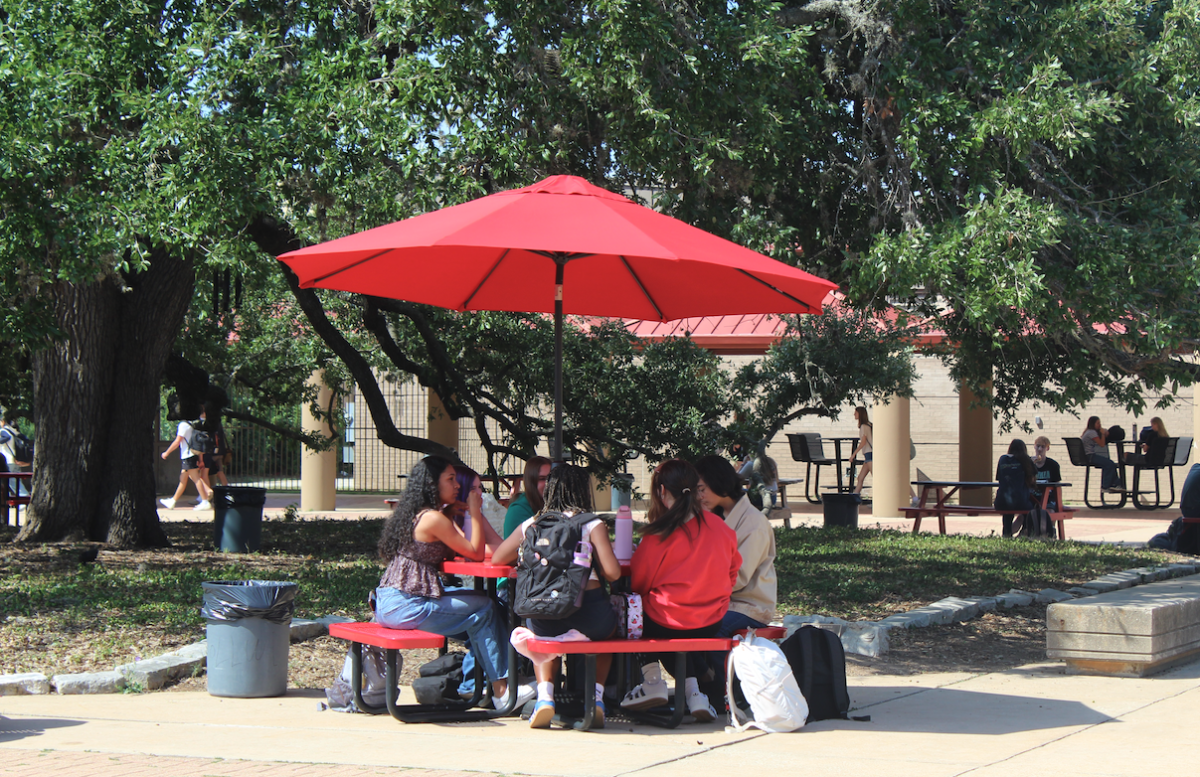Climate change needs to be addressed
May 18, 2021
In February, Texas reached record temperature lows as snowstorms ravaged the state. In Austin alone, over 200,000 residents lost power due to the snow at the height of the outages. And in a horrifying new update that was recently released by the Texas Department of Health Services, over twice the number of people have died from the Texas snowstorms than what was previously estimated, with the death toll currently standing at 111 lives.
Even though the event now referred to as a “snowpocalypse” occurred some time ago, this new information that came out is a reminder of the shortcomings of Texas infrastructure and legislation, namely in regards to climate change.
These sort of events are all too commonplace in the U.S. and should act as a wake-up call to take on more progressive counteractive measures. The Green New Deal is one of these measures. Climate change must be addressed, and we must take on the present problems under the Green New Deal in order to prevent further disaster.
Climate change is more than just a flashy word used to bolster a conversation. It is currently creating detrimental changes to our country’s environment, and these changes are accelerating. According to the United States Environmental Protection Agency, the Earth’s global surface temperature has been rising on average 0.15º F every decade since 1901, with the U.S. temperature rising at a faster rate than the worldly average.
This surface warming is in large part caused by the emission of greenhouse gases from large corporations, which get stuck in the atmosphere and trap the Earth’s heat. The Carbon Majors Report states that since 1988, 100 corporations produce around 71% of the greenhouse gas emissions found globally. This is a huge number, and only emphasizes the role large corporations have in ruining our planet.
While only a fraction of a degree of increased warming per decade may seem insignificant, the National Aeronautics and Space Administration (NASA) has projected that if these trends continue, climate change could cause huge issues that are even more detrimental than the problems we see today.
NASA has reported that climate change is leading to long-term atrocities such as massive droughts, more common and more intense heat waves, larger and more frequent hurricanes, the possibility of sea levels to rise up to eight feet by 2100, and scarily enough, for the arctic to essentially melt entirely and become ice-free.
If general environmental damage isn’t abhorrent enough already, by the turn of the century over half of the animal species in habitats like the Amazon or the Galapagos could become extinct due to climate change. And as for humans, climate change exacerbates issues like home damages, higher bills, health issues, as well as more expensive and limited food and water.
These complications caused by climate change also affect certain groups of people significantly more than others, namely people of color. According to the Princeton Student Climate Initiative, “communities of color are disproportionately victimized by environmental hazards and are far more likely to live in areas with heavy pollution.” For example, people of color in the United States are 38 percent more likely to be exposed to asthma-inducing gas emissions from non-renewable resources due to historical redlining. Additionally, 57 percent of Americans of color live in an area that has at least one failing health grade in regards to air pollution. This number is only 38 percent for white Americans.
Climate change is more than a surface-level issue. It is a systemic issue that has disadvantaged marginalized communities. Climate justice acts as a form of social justice, and it is crucial to implement strategies like the Green New Deal to combat it.
The Green New Deal is a congressional resolution initially presented by Rep. Alexandria-Ocasio Cortez and Sen. Edward J. Markey that addresses climate change in America. It outlines the re-shaping of the American economy in order to prevent the detrimental consequences of climate change.
The Green New Deal does not directly present any new legislation to be passed by law, as it is non-binding, but it instead sets the groundwork for acknowledging the large systemic issues in our country regarding climate justice. Starting with the Green New Deal, the United States can begin to create policies that actually allow the resolution’s ideas to come to true fruition.
While President Joe Biden’s climate plan to invest $2 trillion into climate prevention and create millions of jobs has good fundamentals, it is not drastic enough and is lacking in many ways. It doesn’t abolish the damaging practice of fracking, it doesn’t acknowledge other systemic issues tied into climate justice such as housing and healthcare, and Biden aims to complete his plan by 2050 rather than the Green New Deal’s goal of 2035.
Climate change isn’t an issue that can wait. Climate change isn’t an issue that can be postponed due to financial greed or as an effort to stave off the inevitable. The problems are already here and are only going to get worse. Climate justice must be ensured now, by any means necessary. Anything less, and we betray our fellow humans and the very Earth we inhabit.









